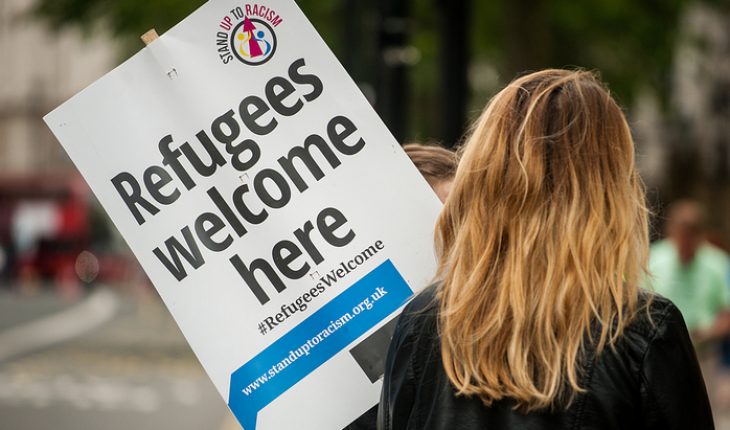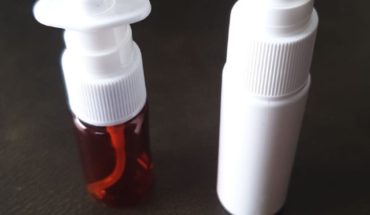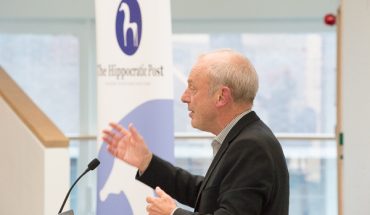“Doctors are not border patrol,” Dr Paquita de Zulueta stresses, “nor are we the Home Office.” Such distinctions – no matter how forceful – do not always put refugees in the UK at ease when they need healthcare.
Refugees often do not access treatment because they fear being reported. Sometimes, they are denied primary healthcare because practices insist on paperwork they do not have.
Refugees often do not access treatment because they fear being reported. Sometimes, they are denied primary healthcare because practices insist on paperwork they do not have.
A clinic in Bethnal Green, east London – run by the charity Doctors of the World (DotW) – addresses this problem by providing healthcare and advice to undocumented people. de Zulueta has volunteered at the clinic for eight years.
One of her most memorable patients had paid £30,000 for a health visa for breast cancer treatment in the UK. Only when she arrived from Africa did tests show her cancer was already advanced. She also discovered she was 30 weeks pregnant.
The hospital’s priority was to deliver the baby, which was then sent to a special baby unit because it was premature. The mother was discharged with just a week’s supply of morphine. When she came to the clinic, she was completely swollen, had fluid in her lungs and could not lift her neck. “I hadn’t seen anything like it,” de Zulueta says, “but she still managed to smile at me.”
The clinic put her in contact with a human rights lawyer and child services. She was re-admitted to hospital and given tamoxifen, an inexpensive drug. That meant she was fit to travel again, and she returned home in a much better state.
Though the case was rare, the pattern is familiar – a preventable problem turned “outrageous” because of confusion about refugees’ rights to healthcare. The doctors’ role at the clinic is simple, de Zulueta says: “We’re clinicians, we see people according to their clinical needs.”
The clinic runs a drop-in clinic on Mondays, Wednesdays and Fridays. There is a family clinic – specifically for women and children – on the first and third Tuesday of every month. It is a busy operation comprising four non clinical volunteers, two clinical volunteers, four support workers and two doctors and nurses. They see 12 to 15 people everyday; about 1500 people every year:
Phil Murwill, the UK Programme Manager for DotW, has managed the Bethnal Green clinic for four years. Last year marked the clinic’s tenth anniversary. Given the country’s “worsening” attitude to migrants, Murwill says it will likely be needed in ten years’ time.
Part of that “worsening” problem is the myth of “health tourism”. On average, the clinic’s patients have waited for six years to seek healthcare, which undermines the notion that refugees come to the UK simply to abuse the NHS.
Murwill says that anti-immigration rhetoric creates a “false economy”: “You put people off accessing care and so people are accessing care later when they need a drastic intervention which is worse for the patient and costs the NHS more money.”
The clinic works against that misconception by explaining healthcare jargon to refugees, from their rights to primary care to how NHS bills works. They do not aim to replace the NHS, but work “in parallel” to it.
Their “bread and butter” is GP registration. In theory, that should not be a problem – everyone in the UK is allowed to register with a GP but people are often asked for gas bills, tenancy agreements of passports. “In practice”, Murwill says, “it stops a lot of people from registering and a lot of GP surgeries will turn people away.”
Even if someone comes in with a toothache, they receive a full social assessment – to find out if they are working in safe conditions, whether they earn enough to put food on the table, and what their domestic situation is like. This provides a more accurate patient profile: “All these different things which obviously affect our well being but aren’t necessarily a health issue from a clinical point of view.”
After these assessments, they can link refugees to human rights lawyers, employers and GPs. They also refer patients to more specific charities like Mind for mental health, Freedom from Torture and the Helen Bamber Foundation for torture victims. The clinic also provides sexual health and pregnancy tests.
Murwill says that they see 80 per cent of patients just once: “We generally try to empower people and not just say: ‘you’re somebody who needs to be handheld in this process.’” They point out that they’ve already taken the first step themselves by coming to the clinic and explain their options to them. That approach is crucial in building confidence, Murwill says: “You’re not going to have any problems but if you do, just let us know.”
Another logistic difficulty is language; a third of the patients require interpreters. Chinese and Bangladeshi patients mean that Mandarin and Bengali are frequently heard at the clinic. There has been a recent wave of gay refugees from Uganda, where homosexuality is illegal.
Charnele Nunes, a clinical support worker from Canada, uses her mother tongue of Québécois to speak to refugees from French-speaking African countries. It helps to establish a “safe space” for refugees, necessary when talking to victims of torture or human trafficking.
These sensitive conversations require unraveling. “Someone might say they live with their uncle, when in reality, it’s not a blood uncle,” Nunes explains. She has to spot these signs of abuse: “It could just be someone they call uncle in an exploitative situation, which can end in domestic abuse.” Often, when they open up to Nunes about historic or ongoing abuse, it is their first time discussing their trauma.
Progress is not straightforward. Nunes recalls one patient who was trafficked into the UK with promise of work at a nail salon. That turned out to be a prostitution ring. She came to the clinic with a low CD4 count – the count of white cells which shows how progressed the HIV virus is. The normal count is 2000, hers was 90.
She returned in six months, after starting anti-retroviral therapy and an asylum claim. Nunes barely recognised her. It is not all good news: she is still involved with the prostitution ring – she is too scared to leave it and the clinic has to respect her choice.
While it may not guarantee immediate happy endings, the clinic is a vital first step where patients are treated for their symptoms and not by their documentation. As that right comes under threat, the clinic holds firm – and its doctors remain doctors, not immigration officers.
- Sleep and the social competence of children - 24th March 2020
- The truth behind health tourism - 6th July 2017







